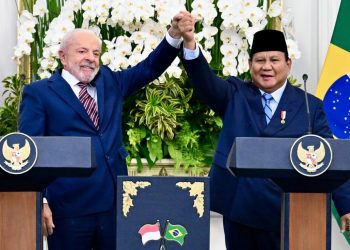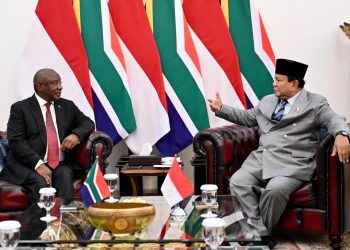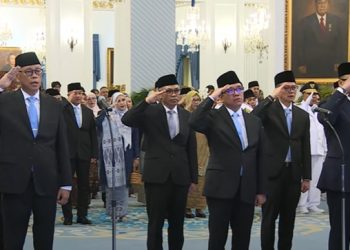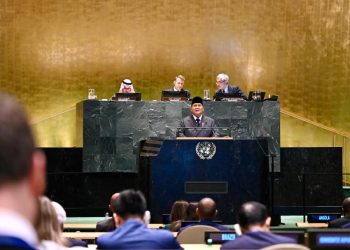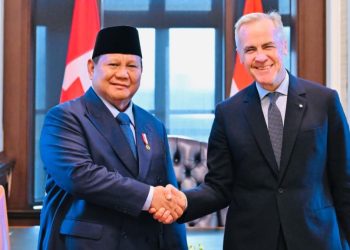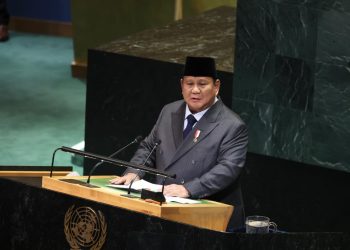Jakarta, Indonesia Sentinel — The prolonged trade war between the United States and China showed signs of easing after both countries agreed to lower import tariffs following intense negotiations in Geneva, Switzerland.
Under the agreement reached on Monday (May 12), the U.S. agreed to reduce tariffs on Chinese goods from 145% to 30%, while China will slash its tariffs on American products from 125% to 10% for the next 90 days.
The announcement follows high-level talks between Washington and Beijing over the weekend. It was the first such meeting since U.S. President Donald Trump imposed steep tariffs on Chinese imports in January, a move that prompted immediate retaliation from China.
President Trump hailed the agreement as a victory for his hardline trade policy, calling it further evidence that his aggressive use of tariffs is yielding results.
“They’ve agreed to fully open up China, and I think this will be fantastic for China, and I think it’ll be fantastic for us,” Trump said at the White House on Tuesday (April 13, 2025), as reported by Reuters.
Trump described the deal as a “first step” toward achieving long-term trade fairness between the two economic superpowers.
Still, U.S. Treasury Secretary Scott Bessent cautioned that restoring balanced trade relations with Beijing will be a lengthy process. “It will take years to fully recalibrate our trade ties with China,” he said.
Read Also:
Indonesia Probes Alleged Chinese Companies Trade Diversion to Avoid U.S. Tariffs
Earlier this year, the Trump administration raised tariffs on Chinese imports to 145%, triggering Beijing to retaliate with export restrictions on key commodities and by hiking tariffs on U.S. goods to 125%.
While the latest agreement offers temporary relief, it remains uncertain whether the broader trade conflict between the two nations will be permanently resolved.
As both sides move forward with the temporary tariff reductions, coming weeks will be critical in determining whether the agreement marks a turning point or simply a pause in escalating trade war tensions.
(Raidi/Agung)










